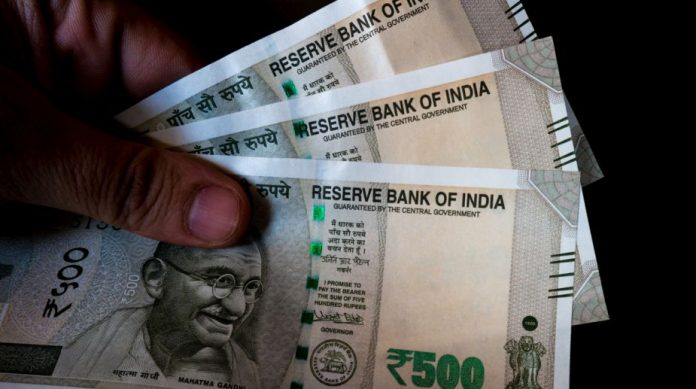This article is written by Sohum Dua, pursuing Certificate course in Advanced Corporate Taxation from LawSikho.com.
Table of Contents
What are tax havens?
In February, 2019, the Washington Post reported that Amazon Inc. paid nil amount of taxes for the year 2018. While the e-commerce giant attributes its nil tax liability to certain rebates by the US Government, this is only part of a grand scheme of things that enable the company to avoid paying almost any amount of tax, legally.
Countries like USA, India, Russia, China, etc. are considered to be the largest economies in the world, however, it may come as a surprise to some that some of the smallest countries, like Mauritius, Cyprus and Malta attract huge amounts of foreign investments from these countries.
This is because these countries have such taxation regimes, that entities can reduce their tax liability to almost nil, just by transferring their income to related entities in such nations. Such nations are known as tax havens.
The Organization for Economic Co-operation and Development (OECD) has laid down certain criteria for identifying tax havens:
- Nil or Nominal Tax Rates.
- Inadequate transparency in dealings and exchange of information.
- Lack of substantial activities.
While the first criterion is sufficient to determine a nation as a tax haven, the rest are used to determine whether that nation will cooperate with the activities of the OECD or not.
How does a tax haven work?
Tax havens are not necessarily tax free. They usually charge a rate of tax that is much lower than the rate of tax in other countries. They usually cover this loss of revenue through other sources, such as by charging higher rates on import duties, customs, etc. They may also charge high and even recurring fees for registration of a company and other fees, such as license fees and so on. In doing so, the Government usually makes up for the revenue lost due to lower tax rates.
How does an entity make use of a tax haven?
Shell Companies
A shell company is one that exists legally, but only on paper, similar to a shell, which is hollow on the inside. The OECD defines it as “A shell company is a firm that does not conduct any operations in the economy (other than in a pass-through capacity), but it is formally registered, incorporated, or legally organized in the economy.” This leads to the question, as to why such a company would be created, if it does not provide any real contribution to the functioning of a company.
These shell companies are used mainly to transfer the income earned by the parent entity in another country, one which usually charges a higher rate of tax. This can best be explained through an example.
Let’s say, there is a company called Zamadon Inc. (hereinafter Zamadon USA), registered in the USA. It earns a profit of $50 Billion in 2019. It has a wholly-owned subsidiary, with an office in Cayman Islands, which is a well-known tax haven. This office is registered as Zamadon Cayman Islands Inc. (hereinafter, Zamadon Cayman Islands). For convenience, we may assume that Cayman Islands is a totally tax-free nation.
In order to provide some functionality to Zamadon Cayman Islands, Zamadon USA sells all intellectual property to Zamadon Cayman Islands. This is then licensed back to Zamadon USA, for which Zamadon Cayman Islands charges $50 Billion. As a result, the entire income of Zamadon USA is transferred to a jurisdiction which is totally tax free, thus saving them a huge amount of money. This is basically how entities make use of tax havens.
In reality however, the structure of the transaction is not that simple. These transactions are almost always governed by a Multilateral Instrument between different countries, in order to prevent evasion of tax. Further, other considerations such as transfer pricing concerns, arm’s length price, issues related to permanent establishment, etc. are also present in order to prevent such gross evasion of tax.
Are tax havens legal?
Tax havens have been referred to as “global black holes” which are used to hide the wealth of the rich and powerful. When tax havens are described in such a manner, they seem to be totally illegal systems designed to appease the wealthy, rather than promote development, which is one of the main objectives of collecting tax. However, this is not entirely true.
The fundamental principle of Public International Law is that of “Sovereignty”. This means that each sovereign nation has the sole power to regulate its internal affairs and its legal system. This means that it is entirely up to a nation as to whether it even wants to levy tax and to decide the amount of tax it wants to levy. Thus, this system of creating a tax haven is not illegal by itself.
However, in the era of vast globalization, creating offshore shell companies is very easy, and many corporations make use of such tax havens to shift their profits to such tax havens with the sole motive of evading taxes, as seen in the example explained above. Such activity is considered to be illegal, as it erodes the tax base of the country, which is something every responsible resident of that country is responsible for.
In order to counter this situation, many countries have signed treaties and Multilateral Instruments with such tax havens in order to prevent such activity. The OECD has also come up with its BEPS Action Plan, which aims to restrict activities of Base Erosion and Profit Shifting while also making tax compliance easier in a seamless manner.
What are the tax havens used for by Indian entities?
Some of the top tax havens where Indian Corporations transfer funds to exploit the gaps in the taxation policies of different countries are Mauritius, British Virgin Islands, Cayman Islands, Luxembourg and Switzerland, among some others.
The benefits provided by some of these nations are as follows:
- Switzerland
- Low tax rates and an extremely high degree of financial secrecy has made this an extremely popular choice for individuals and corporations to park their funds, making the phrase “Swiss Bank Accounts” to be associated with a great deal of money laundering activities.
- Cayman Islands
- The absence of taxes on income, capital gains, and even the profits of corporations makes this one of the most attractive tax havens in the world.
- Mauritius
- In recent time, Indian entities have exploited the DTAA between Mauritius and India, as Article 13(4) of this treaty provides that tax on capital gains will be paid only in the country where they are sold. Thus, if shares are sold to a person in Mauritius, the entire transaction will be free from Capital Gains Tax.
- The Treaty has now been amended to prevent such tax evasion. Clauses 3A and 3B have been inserted under Article 13, which provide that Capital Gains Tax will be levied if shares of an Indian entity are sold in Mauritius.
- However, since making shell companies is a very easy task, it is still possible for other companies to transfer the shares of an Indian company on its behalf in order to make use of Article 13(4) of the Treaty. Thus, if a US Parent of an Indian Company transfers its shares to its Mauritian Subsidiary, the transaction still escapes the incidence of Capital Gains Tax.
Luxembourg : a tax haven for India
Luxembourg, a country that attracts a huge amount of Foreign Direct Investment, is considered to be one of the major tax havens in the world. Low rates of tax and inflation, a flourishing market economy and their focus of financial secrecy makes Luxembourg the perfect place to avoid the burden of paying tax.
Luxembourg is ranked at 6th place as one of the biggest enablers of financial secrecy in the world by the Tax Justice Network. However, Luxembourg does not seem to be such a fairytale land for tax evaders anymore.
In October 2019, the DTAA between India and Luxembourg was modified to be in line with the BEPS Action Plan of the OECD, thus greatly restricting the scope of tax evasion through foreign investment in Luxembourg. Article 7 of the Treaty now clearly provides for the “Principal Purpose Test”, where the principal purpose of foreign investment or setting up a company in another state is analyzed for the purpose of taxation.
If it is found that the principal purpose of such investments and transactions is to evade taxes, then the benefit of the Treaty will not be available to the person making such investment, and their income will be taxed in India, according to Indian Law, thus preventing tax evasion.
Conclusion
Efforts are being made by international organizations like the Organization for Economic Co-operation and Development (OECD)and even countries to prevent tax evasion through exploitation of international laws. The introduction of the BEPS Action Plan and consequent amendment of DTAAs to form MLIs is a great step forward in preventing tax evasion.
However, while efforts are being made to curb the practice of Base Erosion and Profit Shifting, it is very difficult to plug all the loopholes as the sovereignty of the nations cannot be tampered with.
References
Statutes
- Article 13(4), Indo-Mauritian DTA 4
- Article 13, Indo-Mauritian MLI 4
- Article 7, MLI between India and Luxembourg 5
Other Authorities
- Business Today India, Taxing the Untaxed, https://www.businesstoday.in/current/economy-politics/taxing-the-untaxed-income-tax-havens-india-black-money-fdi-inflows-outflows-money-laundering/story/398614.html#:~:text=Tax%20havens%20are%20the%20global,ensuring%20secrecy%20in%20their%20operations. 3
- Corporate Finance Institute, What is a Tax Haven?, https://corporatefinanceinstitute.com/resources/knowledge/other/what-is-tax-haven/ 1
- Economic Times, Exploring the World’s Phantom FDI Destinations, https://economictimes.indiatimes.com/magazines/panache/exploring-the-worlds-phantom-fdi-luxembourg-ireland-well-known-tax-havens-destinations/articleshow/71075083.cms 4
- Ipleaders, Top 10 Tax Havens for India, https://blog.ipleaders.in/tax-haven/ 3
- OECD, Report on Exchange of Tax Information, https://www.oecd.org/ctp/exchange-of-tax-information/42469606.pdf 1
- OECD, Report on Investment Policy, https://www.oecd.org/daf/inv/investment-policy/2487495.pdf 2
- Oxford University Law, Sovereignty, https://opil.ouplaw.com/view/10.1093/law:epil/9780199231690/law-9780199231690-e1472 3
- Tax Justice Network Report on Financial Secrecy, 2020 4
- Washington Post, Amazon Paid No Federal Taxes on Billions of Profits Last Year, https://www.washingtonpost.com/us-policy/2019/02/16/amazon-paid-no-federal-taxes-billion-profits-last-year/ 1
Students of Lawsikho courses regularly produce writing assignments and work on practical exercises as a part of their coursework and develop themselves in real-life practical skill.
LawSikho has created a telegram group for exchanging legal knowledge, referrals and various opportunities. You can click on this link and join:
 Serato DJ Crack 2025Serato DJ PRO Crack
Serato DJ Crack 2025Serato DJ PRO Crack











 Allow notifications
Allow notifications


